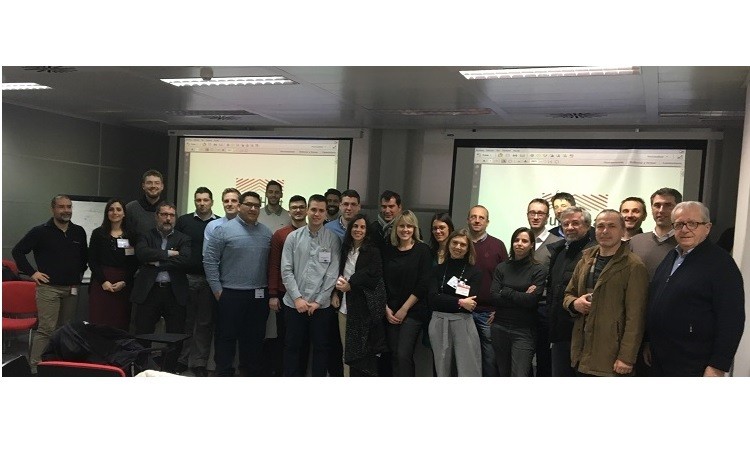BuildHeat entering in its demonstration phase
youris.com EEIG

BuildHeat is quickly leaving its research phase by moving towards the validation and the demonstration phase of the solution packages developed for the three project demo sites.
This step was marked in Madrid at the end of February 2018. The innovation partners of the project gathered for a two days’ progress meeting at Acciona premises where they had series of plenary discussions and reporting sessions regarding its project achievements.
Progress reports on the BuildHeat demo sites were given top priority in the meeting. From Salford, UK, reports have been made regarding the main design solutions adopted for the Albion Tower’s mechanical systems and envelope: in particular, the innovative solution of a geothermal field driving ground source heat pumps set up in the single dwellings was presented and discussed. Secondly coming from Zaragoza, Spain, a progress report has been made with regards to the ongoing retrofitting works related to the envelope solution, while the final plans for the heating and ventilation system, which installation is foreseen in the next weeks, were agreed. The establishment of the voluntary neighbourhood group, facilitating local communication and citizen engagement activities, was presented as well as a good practice example in terms of collaboration with tenants during a deep retrofit action. Lastly, coming from Rome, Italy, the demo sites final plans where extensively discussed.
For each of the demo sites, CIRCE reported about the results of the pre and post retrofitting action Life Cycle Analysis (LCA), shedding some light on the overall environmental impact of the buildings in all phases of their life including production and transport of the components, construction phase, use and materials disposal.
In parallel with the progress made at the demo sites, the University of Salford provided an overview of their assessment results on user behaviour. This session zoomed into some non-technical actions related to the improvement of energy efficiency through citizens’ acceptance and behaviour-change.
Assessing the project’s progress enabled the consortium to strengthen the common vision of everyone working together towards completing the retrofitting works and defining the pathway as to how the developed solutions will be exploited in order to foster further uptake after the project’s duration.



